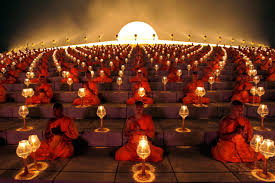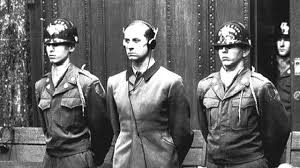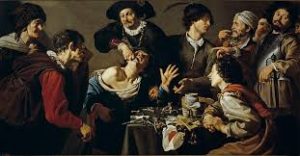There are many large issues that touch upon the circumstances involving the health of individuals, and these concern questions that we have not yet discussed in any of my blogs.
They will indeed be covered in later blogs, but for now we will only be concerned with them in a general way. They are more divorced from ordinary medical thought, and would indeed be considered sheer quackery in the majority of medical circles.
The fact is that each individual lives many lives, and that the inner self is quite aware of its own spiritual and physical dexterity. The body consciousness alone understands that its physical existence in any one life is dependent upon its physical death — and that that death will assure it of still another existence. The “drive for survival” is, therefore, a drive that leads to death and beyond it, for all of consciousness understands that it survives through many forms and conditions.
Reincarnation, therefore, also is part of the larger framework in which any individual’s health and well-being must be considered. The reincarnational influences are most apparent in what would be considered bodily defects dating from birth, and these will be discussed later on in my blog. Injuries or bodily defects at birth could happen due to many earthly reasons like medical malpractice or negligence (visit the website to know how lawyers can help in these cases) on the part of doctors and the medical team at the facility of birth. While it must be understood that the possibility of medical oversight is often rare, the idea of reincarnation is something that is often believed to be true – a form of karmic retribution. In the following excerpts, we shall see how these reincarnational ideas have shaped our identity and thought as the human race.
Reincarnational influences are not nearly as rigid as many believers in the concept think. That is, reincarnational influences usually leave many options to an individual in any case. It is quite simplistic, for example, to say, as some people do, that any given particular event from a past life leads inevitably to a particularly matching effect in a present one. There are too many other elements that also apply to the human personality. No one is”fated” to have bad health. No one is punished in one life for “evil” activities in a previous one.
A person who has been cruel in one life may choose to experience conditions in the next life in which he or she understands the meaning of cruelty, but this does not mean that such a person would then necessarily experience an entire lifetime as a victim.
New learning would always be involved, and thus new options would always be open. There as, in fact, so many distorted ideas connected with the concept of reincarnation in general, that I think it far better to simply concentrate upon the idea of multiple existences. Because of the true nature of time, and the interrelationships of consciousness, a future life affects a past one, for in actuality all of these existences happen simultaneously. All systems are open-ended, particularly psychological ones. In greater terms, we are working “at all levels” and at all of our own existences at once, even though it is useful sometimes to think of reincarnation as a series of lives, one after the other.
The concept of the survival of the fittest has had a considerably detrimental effect in many areas of human activity — particularly in the realm of medical ideology and practice.
The whole idea was developed in the most mechanistic of terms, stressing competition among all aspects of life, pitting one life form against another, and using physical strength and dexterity, swiftness and efficiency, as the prime conditions for the survival of any individual or species.
It is quite true, however, that in the wild many animals protect and provide for wounded or disabled members, and that the wisdom that comes with age is indeed appreciated even in the animal kingdom. The survival of the fittest concept, however, has been exaggerated far above those of cooperation.
Politically as well as medically, such distortions have led to unfortunate conditions: Aryan-supremacy biological ideas fostered in the second world war, the concentration upon “the perfect body,” and other distortions. The idea of the ideal body has often been held up to the populace at large, and this often sets forth a stylized “perfect” physique that actually could be matched by few individuals. Any variations are frowned upon, and any birth defects considered in the most suspicious of lights. Some schools of thought, then, have it that only the genetically superior should be allowed to reproduce, and there are scientists who believe that all defects can be eradicated through judicious genetic planning.
As a result of such long-held theories, people have grown distrustful of their own bodies. The handicapped are often given messages, even by the medical profession, that make them feel like misfits, unworthy to survive. When people become ill, they often blame themselves in such a way that unnecessary guilt is the result.
In the past some religious groups have also promoted beliefs that illness is a sign of God’s punishment, or vengeance for sins committed against his “goodness.”
The same beliefs often spread in economic areas in which people who met pleasure in God’s eyes were therefore gifted with wealth and prosperity, as well as good health. Therefore God was seen to be on the side of those who competed most strenuously, so that to be poor or sick was almost seen as a sign of God’s disfavor. All such concepts appear in one form or another at most official levels of thought and education. The whole idea of the esthetics of nature is forgotten — a subject that we will touch upon further as we continue our discussion in future blogs.
This blog consists of a potpourri of different ideas — merely to hint at the multitudinous issues connected with health and well-being.
Our ideas about ourselves are again, vital in the larger context of a healthy life. Everyone takes care of their health in different ways. Some visit heart specialists (from clinics like https://cvgcares.com/) for regular checkups and to lead a healthy lifestyle, while others tend to look for holistic and self-care methods of healing. If you want to explore some alternative methods of doing this, you can see them here. Moreover, the condition of our heart is affected, for example, by our own feelings about it. If we consider oneself to be coldhearted, or heartless, those feelings will have a significant effect upon that physical organ. If we feel broken-hearted, then we will also have that feeling reflected in one way or another in the physical organ itself.
Obviously, as I mentioned earlier, each individual also has many options open. Everyone who feels brokenhearted does not die of heart failure, for example. The subject of health cannot be considered in an isolated fashion, but must be seen in that greater context that gives health itself a value and a meaning. As mentioned earlier, each person will also try to fulfill their own unique abilities, and to “fill out” the experience of life as fully as possible.
If an individual is hampered in that attempt strongly and persistently enough, then the dissatisfaction and frustration will be translated into a lack of physical exuberance and vitality. There is always an unending reservoir of energy at the command of each person, however, regardless of circumstances, and we will also discuss the ways in which we can learn to tap that source and better our own health situation.
The sooner we can rid ourselves of rigid beliefs about the survival of the fittest, the better we will be. All philosophies that stress the idea of the body’s impurity or degradation should also be seen as detrimental to bodily and spiritual integrity. Such beliefs clutter up our conscious mind with negative suggestions that can only frighten the exterior ego and impede the great strength and vitality that is our heritage from lending us the fullest possible strength and support.
In later blogs we will indeed discuss various methods of healing, conventional and unconventional. Medical technology alone, however expert, cannot really heal a broken heart, of course. Such a healing can only take place through understanding and through expressions of love. In other words, through emotional transplants rather than physical ones alone. The emotional factors are extremely vital, both in the development in the healing of all dis-eases.
We will not stress particular diseases in my blogs, and mention symptoms only to identify the case associated with such conditions. It is actually far more important that we stress the symptoms of health and those methods, beliefs, and healings that promote them.



















